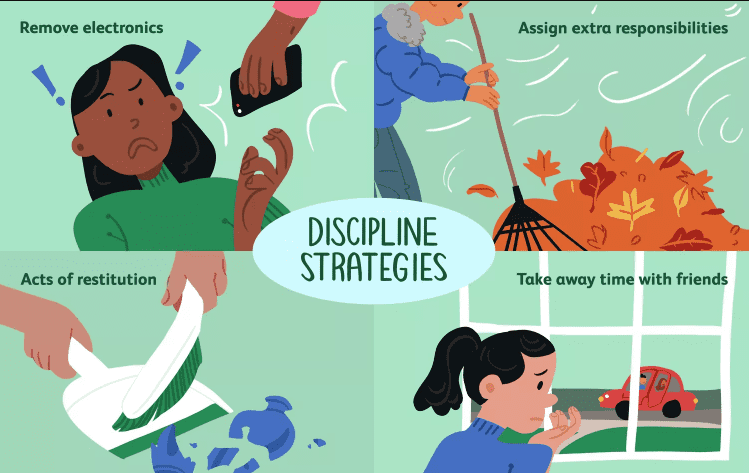
Were you given any form of parenting manual after you gave birth to your kid in the hospital? Parenting is something you discovered yourself after birth; the instinct just kicks in. There is no perfect way to parent, and how you do yours can depend on the following;
How you were raised.
How you see others doing theirs.
Cultural background.
Considering the fact that we have different types of parenting styles, you then wonder how exactly you should train your child. Alternatively, even if you are doing the right thing, some parents might paint their parenting style to be the best, saying their children are calm, and rarely cause trouble. Well, the truth is that every kid passes through different stages in life. You cannot expect your child to be behaving the same way as a teenager when he/she was still your young. Kids are naturally strong-willed, or as people refer to them here “stubborn”. We want to refrain from using that word in this context, as we are trying to explore the positive aspect of having strong-willed children.
Strong-willed children are different from bad children, while a bad child would want to defy your authority, strong-willed children are always on the path to learning things on their own terms. You know that determination we all have when we set our minds on something? Strong-willed kids display those attributes too. You find it difficult to change their minds once they have their mind set on doing something. While you the parent might love this part about them, where the problem starts to set in is when you instruct them to do something, and they refuse. No one likes being pushed around, same for them, as they find it unbearable and hard to live with. Some other popular attributes of strong-willed children include;

They are curious and inquisitive. They always want to know why. When you tell them “do not do this”, they will want to know the reason behind that.
They act bossy. If you notice your kid telling his/her peers how to behave, then the kid is strong-willed.
You cannot force them to do what they do not want. Tell a strong-willed kid “do not jump”, if she is not interested, she will ignore you.
They set their own rules. Rather than go to bed when you instruct them to do so, they will sleep when they feel they are tired.
They express their emotions. This occurs especially when they get frustrated and have their rules questioned. Or when something is not going their own way.
With those being listed, strong-willed kids can be persistent, full of energy, and challenging. How do you train them in a positive way, so it does not appear like you are trying to break them?

1. Do not get angry – with all these defiant attributes, it is very easy as the parent to lose temper. This won’t help in any way. Rather be calm, and when you think you are about to get angry, move away from that situation at that moment, then you can address it when the atmosphere is calm.

2. Avoid setting them off – as their parent, you should know what gets them off. Avoid putting them in such situations. If you notice their countenance changes during a particular house chore, give them another one to do instead of forcing them.

3. Let them have a sense of authority – Ensure you do not push them, instead let them understand what is best for them. Should in case your child refuses to put his/her jacket during cold, don’t force them to wear it. Let them know the reason they should wear it: they might get it. You can also keep the jacket in their bag, they can wear it when they change their mind.

4. Rule and consequences – this is introduced so it does not appear like you are not trying to indulge every of their attitude. Let there be rules and adequate consequences if they break the rule. Not too harsh, but in a calm and friendly way. Let them understand the reason they must be punished for disobeying your rule.

5. A positive reaction – it is not every time you bring out the cane/whip. Praise them when they do something you like, and let them know the importance of their obedience.
The Positive aspects of raising strong-willed kids

Before you conclude that your strong-willed child is a problem for you or the family, keep in mind that this attitude can be of help later when they are grown. Part of the good that their attitude brings include;
Fearlessness – standing up to what they believe in.
They do not fall for peer pressure. As a strong-willed child will give you peace of mind as they cannot be easily swayed into something.
While you might come across some milestones when training them, the main point is training them on how to transfer their whole strong-willingness into something positive. This sounds more like the Authoritative parenting; you set rules for them and let them understand that there are consequences attached to breaking those rules. However, you do this with the interest of the child at heart, which makes them understand and cooperate with you. Refrain from being harsh with your care, you do not want to have anti-social kids.
What’s Taking place i am new to this, I stumbled upon this I have
found It absolutely helpful and it has aided me out loads.
I hope to contribute & assist other users like its helped me.
Good job.
Nice post. I was checking constantly this blog and I am impressed!
Very useful info particularly the last part 🙂 I care for such info a lot.
I was seeking this particular information for a very long time.
Thank you and best of luck.
I value the blog article. Awesome.
Or perhaps they’re overwhelmed by the environment and haven’t yet learned how to cope with those emotions. Take a deep breath, ask questions, and listen to what your child has to say.
While their stubbornness will serve them well in the future when they won’t let anything stand in the way of their dreams, it does present quite a challenge when you’re trying to teach them not to draw on the walls. Here are five discipline strategies that actually work to help teach your strong willed child right from wrong.
Reinforce positive behavior There will be times when you would not know what to do with stubborn children to control their anger and aggressive behavior. But if you react without thought, you may develop a negative attitude towards the problem and even reinforce their negative behavior unwittingly.